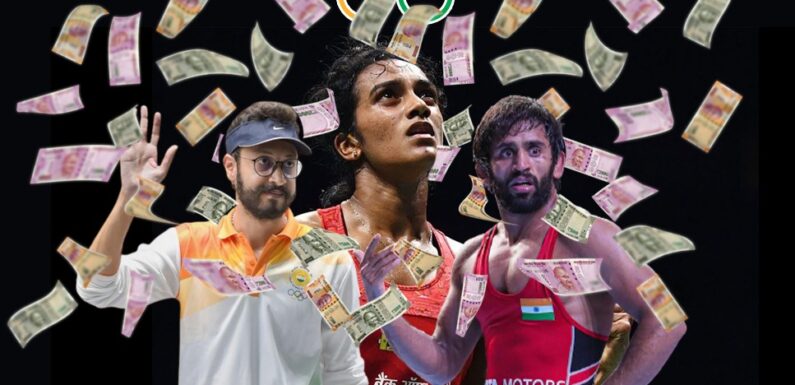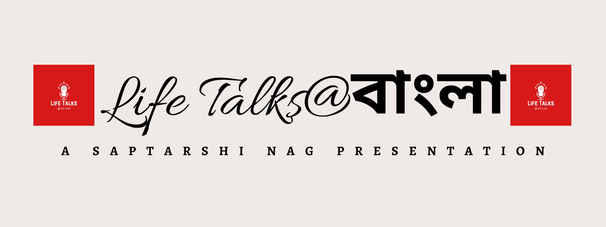
Not even a year is left before the Tokyo Olympics 2020 begin. With so little time in hand, are we really all geared up to produce inspiring performances at the center stage of world sports? How much have we learned from the lackluster performance in Rio 2016? This article was written immediately after the Rio debacle. It is for you to decide how much has changed since then.
Despite nationwide late jubilation over two medals at the Rio Olympics or the social media uproar over consecutive failures in every other event till that late stage, the fact still remains that India with a population over 1.25 billion ranked 67th at the Olympics. Twitter trolls among celebrities may invoke momentary feelings of pride. Bashing of the likes of Piers Morgan or the insignificant Shobha De by the Senior Bachchan or the Nawab of Najafgarh may uplift our spirit for a while, but the fact remains a fact. India has performed miserably in the Olympics and there is every reason to be ashamed of and take lessons from other smaller nations with lesser population.
After much fanfare, when some of our much-celebrated sports-persons started their Rio campaigns, they appeared to be nothing more than glamour dolls with the sole objective to display the brands they were endorsing. Some even looked desperate to offer a sneak peek into their shapely bodies with Silver screen ambitions. Prior to the Olympics, the way some of them were using social media, urging people to support them, made us wonder when did they practice their game? Some were even busy launching their books or taking beachside selfies. Some were promoting movies. The results were thus nothing surprising. On the contrary, the likes of Sindhu, Dipa or Sakshi were happy to be away from the limelight before the tournament began. There is no disgrace in being defeated. But the way, most of our athletes were outwitted, a point must be raised questioning the sincerity of our participants. There was much hullabaloo over the contingent of 117 sportspersons this time (a record thus far for India!). But our sports authorities definitely relied upon quantity rather than quality to shine in the medal podiums. Not much of quality control was in operation. No sense of discipline prevailed. Struggling seniors refused to quit. Underprepared youngsters rolled in untrained. Factionalism in several sports came out in the open. The result was quick and obvious, much to the chagrin of us Indians, who waited hours after hours with a hope to see our national flag being unfurled at the largest congregation of the world’s sporting nations.
Raw, untrained yet potential talent or the lack of political or administrative goodwill to nurture the talent to international success, India is abundant with both. We have swimmers with bountiful talent in the rural areas; we have athletes of the highest order in unknown villages. We have good volleyball teams in every Mandal, block or tehsils. But what we unfortunately lack is the honest intention or endeavor to harness the talents to bloom under caring and secure patronage. Lack of money flow can very much be linked with the absence of desire. We can draw inspiration from Australia’s Institute of Sports (AIS) where young talents are pulled in from every nook and corner of the country and they are trained by professionals from all over the world so that they are inculcated the sporting values of every nation. Simultaneously they are guided by psychologists, sports analysts, and sports medicine specialists. The institute has done a remarkable job in sports science and medicine. Just imagine if such an institute is proposed to be built in India. There will be political clash initially over who will get the accolades for the initiative. Once that subsides, there will be clashes over the lands. Once that is resolved, the real game will begin. ‘Show me the money’- every politician or bureaucrat will shout. Nation will again be rocked by another scam. The Commonwealth scam is still fresh in our memory.
The ones who have watched ‘Million Dollar Arm’ (Do not confuse with ‘Million Dollar Baby’ by Clint Eastwood) know what sort of admiration Indian talents hold in the eyes of the foreign coaches or sports agents. It tells the real-life story of eminent baseball pitchers Rinku Singh and Dinesh Patel who were identified by sports agent J.B.Bernstein through a talent hunt competition in India. Bernstein not only identified these raw talents but also provided them with an ambiance of trust, love, and care to bloom into celebrities of the arena. Had those talents been left unidentified and allowed to rot in some unknown Indian villages, the world would have missed two fine baseball pitchers and India would have given a damn. Sad but true.
A very common thing in Indian sports is the formation of an inquiry committee immediately after a debacle to probe into the matter. By the time the committee submits its report, time comes for another major event. Thus some decisions are hastily made to accommodate the findings of the committee. No long-term plan is adopted. The results are even more disastrous. The policies change with the change of baton at the centre. And history is the witness that adhocism does not work in sports.
Now, we may have a look at what other nations are doing in various sports. Belgium, which was languishing at the bottom of the FIFA ranking among major European football teams, has come up recently as one of the best rankers in the game for consistent performance. In early 2000, they had adopted a 16-year term plan for improving the standard of football. This was followed by a micro-level talent hunt. Simultaneously state of the art institutes were developed to groom the findings. Thus within a few years, they had prepared a pool of talented players of several age groups. They were nurtured, sent to different countries to adapt to the conditions. From the beginning of the ongoing decade, the results of the experiments were coming out. The team with players like Hazard, De Bruyne, Nainnggolan or Lukaku held the no 1 FIFA ranking from Nov 2015 to March 2016. Recent researches show that the countries with the highest rankings in the Olympics do not use their sports budget indiscriminately for overall sports to excel in the Olympics. Rather specialization in specific sports is the hallmark of their judicious investment. In the 2016 Olympics, the US won 76 out of their total tally of 121 medals from only swimming, athletics, and gymnastics. African nations have specialized in track and field events only. Khushwant Singh once wrote that the Germans used to develop a friendship with Indian students residing there to learn a trick or two in hockey, as India was the undisputed ruler in hockey in the world then. And you can judge where we stand today. We may boast of sending the highest ever contingent this time, but was the reality check on serious chances of medal-winning ever done? The nation may celebrate winning 2 medals out of 117 participants, but any concerned taxpayer will definitely ask for more dividends.
We have a strange system of sports development in India. The people who have never participated in any sports sit at the helm of the affairs of the ministries, councils, associations of sports. Government officers with very little knowledge or interest in sports are made the secretaries of sports. Bollywood hunks with only a glamour quotient are made goodwill ambassadors. We do not even have the concept of sports psychology or sports science. Remember Sandy Gordon, the eminent sports psychologist? He was instrumental in developing the concept ‘Team India’ and its famous huddle, which has now become a practice in every sport. Unfortunately, none in India aspires to be a Sandy Gordon. How many doctors in India aspire to be sports medicine specialists? How may physicists or biologists aspire to be sports scientists? This is because we have been taught that good students do not play sports or sportsmen are not good students. This categorization culls many good athletes at the very entry-level. Sports unless treated as a very important component of our educational curriculum, we have bleak chances of shining at the highest level.
So far in an attempt to scrutinize the reasons for the failure of India in Rio 2016, I have deliberately bypassed lauding India’s minuscule achievements. Someone had a very meaningful tweet a few days back. ‘While we are trying to save the girl child, our girl children saved us from humiliation in the Olympics.’ Sindhu, Sakshi, and Dipa ( although she failed to secure a medal, she definitely won our hearts for her talent, sheer devotion, composure, and simplicity) gave a tight slap to our all-knowing male chauvinistic society. We must not let their efforts go in vain. Amidst the darkest clouds of India’s failures, they stood tall like the silver lining. Their stories of sacrifice, devotion, and fighting against the odds must find a place in the curriculum at the early stages. The sports authorities must come with a comprehensive long-term plan. The government must be liberal in allocating budgets for sports. Officers with a background in sports should be given the task to implement the policies. A central institute with branches in every important town must be set up to nurture young talents. And most importantly at least sports should be kept free from the dirty clinches of politics. Let the silver lining guide us to golden quests.
Written back in 2016.
Also Read









